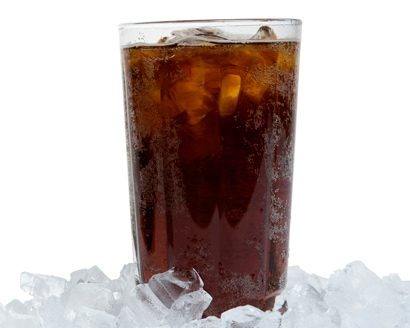Beer That Isn't Beer
Root beer, a familiar but increasingly neglected soft drink, can trace its history back to the Colonial era, when roots and herbs and barks of various kinds were boiled in water as a way of making that water safe to drink. The resulting brews were frequently fermented into low-alcohol beer, the alcohol having a further purifying effect. Not surprisingly, it was a temperance advocate who created a non-alcoholic version. He was a Philadelphia pharmacist named Charles Hires, who supposedly had the idea for root beer more or less as we know it today when he was served "root tea" on his honeymoon in New Jersey. He mixed up his own formula in dry form and sold it to soda fountains, where water, sugar, and yeast were added.
It sold slowly in that form, but then he presented a liquid version of what he had decided to call root beer at the U.S. Centennial Exposition in Philadelphia in 1876. Encouraged by his friends in the anti-alcohol movement, he described it as "The Temperance Drink" — and bottled root beer did end up becoming enormously popular as a beer substitute during Prohibition.
The Hires brand of root beer is still sold, now under the ownership of the Dr Pepper Snapple Group, but it has a fairly generic flavor. There are a number of other national brands — among the best known are Dad's, A&W, and Barq's — and a surprising number of small regional bottlings. I've counted more than 75 different root beer labels myself, and I'm sure I'm missing some. Root beer recipes tend to be fairly complex, including things like sassafras, liquorice, spruce, balsam, burdock, wintergreen, hoja santa, hops, fennel, nutmeg, even sometimes chocolate — among many other things. In a good root beer, no one flavor predominates, though suggestions of liquorice, mint, and some indefinable medicinal tang are common.
I'm partial to Frostop root beer, which I discovered years ago in a convenience store in Detroit on a hot August evening when I was looking for something cool and flavorful to take back to my hotel room. Having grown up with Dad's, I remember being surprised at how rich and mysterious the Frostop tasted — not too sweet, but with a lot going on, including what I thought of as a bit of an oaky taste. Frostop, I later learned, was developed by one L.S. Harvey, who opened a root beer stand he called Frostop in Springfield, Ohio, in 1926. That stand grew into a national chain of drive-ins, some of which still exist. It's worth watching for one, or looking for Frostop in convenience store coolers.
Far less common than its cousin, birch beer is similarly a carbonated soft drink or soda flavored with various roots and herbs, the difference being that birch bark oil, which is highly aromatic, is the overriding flavor. Though there are a dozen or more brands available around the northeastern United States (about the only place where people drink much of it), the birch beer market is pretty much owned by the Boylan Bottling Company of Teterboro, N.J. — which is as it should be, because it was a New Jersey pharmacist named William Boylan who first concocted it, back in 1891, as a patent medicine that he christened Boylan's Birch.
In 1900, as soft drinks were becoming popular in America, Boylan launched a bottling company. The onset of Prohibition in 1920 was good for business, and Boylan sold vast quantities of what he called Boylan's Draught Birch Beer. After Repeal, the Boylan family switched their attentions to the distribution of real beer and spirits, and sold their recipes and customer list to Frank Fiorina, who had worked as a delivery driver for the firm. Fiorina focused on the birch beer, selling it all over Passaic County, N.J., and not much farther afield. His grandsons inherited the company in the mid-1970s, and expanded the business to include a full line of fountain syrups. Throughout the '90s, they successfully rolled out one new soft drink after another. Boylan's Birch Beer is serious stuff, with a forthright herbaceous heft and a ghost of mint. Made like all Boylan's sodas with cane sugar, not corn syrup, it remains at the heart of the company's success.
I'm sure there are stalwarts out there who will disagree with me, but one thing I've noticed about both root beer and birch beer is that, unlike most other soft drinks, they don't seem very friendly to added alcohol. Gin and ginger, rum and Coke, Seagram's and 7UP, sure. Root beer and vodka? Not so much. In the spirit in which they were originally marketed, though, both root and birch beer make very pleasant non-proof beer substitutes, especially on warm summer days.
